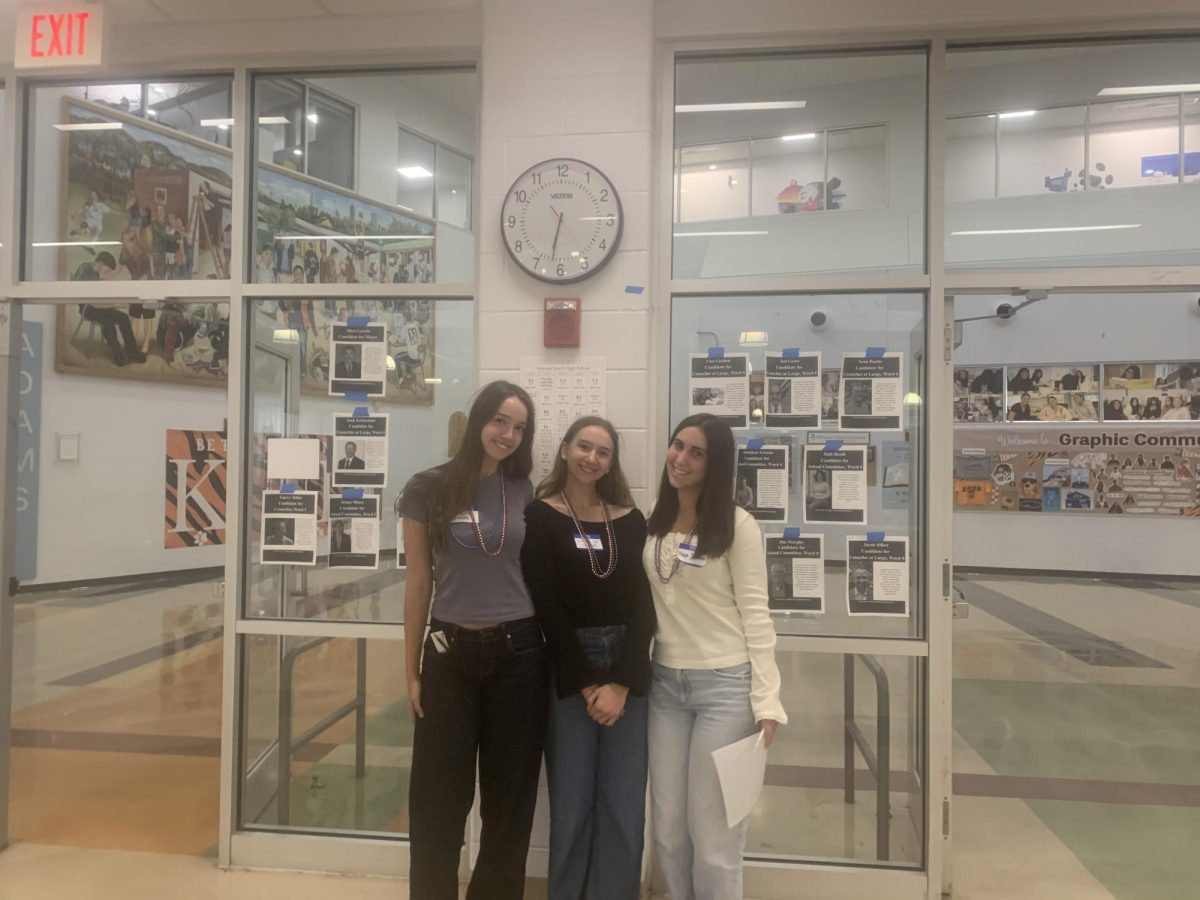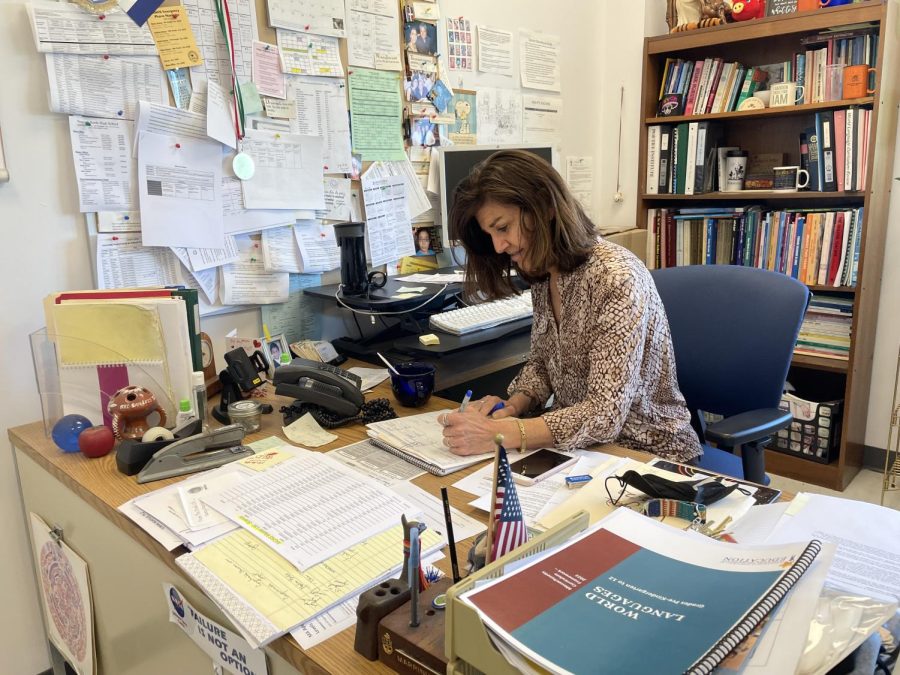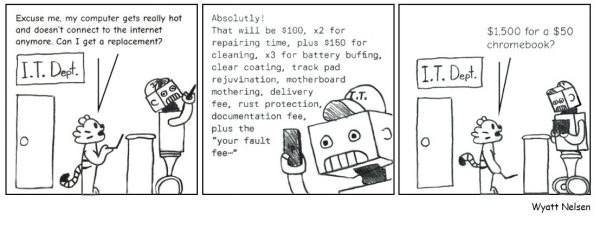Marrinucci addresses hiring substitutes in exclusive Q&A
Marinucci works at her desk in her office.
June 10, 2022
Towards the end of this school year, The Newtonite plans to publish a story focusing on the intricacies of being a substitute teacher at North. As a prelude to this bigger story, we are publishing a short Q and A that will provide our audience with a background to the longer story to come. In an exclusive interview, The Newtonite sat down with Nancy Marrinucci, World Language Department chair and North educator of 22 years, and spoke with her about the difficulties of hiring and vetting both short-term and long-term subs. Below is our conversation, edited for clarity and concision.
Q: How does the hiring of a sub work? What’s the process like?
A: My goal, particularly with short-term substitutes, is to hire folks proficient in the language. In other words, I don’t necessarily look for someone who has teaching experience—if they do, fantastic—but I have to weigh “what do I want most urgently done?” I want someone who can converse with the students in the language, and who is very, very proficient in the language, if not a native speaker, to keep the students going. Because I can support the teacher, and colleagues can support the teacher while they’re here, if there’s say, lesson plans or those kinds of things. With that said, it is very difficult to hire short-term substitutes. So to hire somebody to come in and do this work, who’s proficient in the language, takes a special soul.
Q: What makes hiring a sub difficult?
A: When long term-substitutes get posted, I see what I get. In this pandemic era, there’s such a teacher shortage and substitute shortage, that it is so difficult to hire substitutes. It can be one of the most difficult parts of the job, because ultimately it’s the department chair whose responsibility it is to find the substitute. If you don’t have anyone before you leave , you’re doing it over the summer.
Q: Where have you looked to find subs?
A: In the past I have gone to Newton Community Ed. I look to the parent community because we have a lot of languages represented. And it’s very anxiety provoking, because sometimes at the last minute, I still don’t have someone. So what I did last spring when I knew there was going to be a maternity leave, I had it posted. I reached out to my teachers and said, “who do you know?” I went back to my substitutes for the exchanges, as well. I used my network. Retired teachers as well. We do this all the time as department chairs.
Q: What happens once you find a sub?
A: I will meet with the person, and I will have them meet the teacher who’s going out, and basically say, “here’s what I’m looking for.” I’m looking for you to keep speaking in the language and that you try to follow the lesson plans to keep the curriculum going. That’s what I’m looking for.
Q: What administrative preparation do the subs get?
A: Especially if they are long term, there’s more preparation. If it’s anticipated, then the teachers meet several times. If you can anticipate the need, there’s a lot more preparation that can happen, in terms of meeting with the teacher, “here are my plans,” what questions do you have, “here are my materials,” making someone an administrator in the Schoology course, setting up the Schoology course. If not, you really have to do a lot more hands-on work as the department chair, if you don’t have somebody who can mentor the substitute.
Q: What policies and safeguards are in place for the vetting process?
A: Everybody has to be CORI’d (Criminal Offender Record Information) and SORI’d (Sex Offender Registry Information). Beyond that, you obviously look at a resume. And if there’s student feedback, for example—that things are not going well—we have to address it, obviously. If they’re not familiar with Newton North at all, they are not familiar with our practices, our policies, or our culture, that is difficult. But that’s when the department head has to do a lot more micromanaging.
Q: How would you view hiring substitutes within the wider scope of your role as department head?
A: I think hiring substitutes is one of the most challenging parts of the job, particularly when it’s unexpected. And particularly now, because there is such a need for substitutes with the pandemic and the teachers who had health challenges. Teachers are leaving this profession in droves, because of COVID-19. It’s very challenging. So, what are some solutions? One might be to establish a pool of substitutes in Frontline, our hiring management system, that we could draw on for an expected or unexpected need. Another is to increase compensation for substitutes.
A more developed story will be released soon.























































